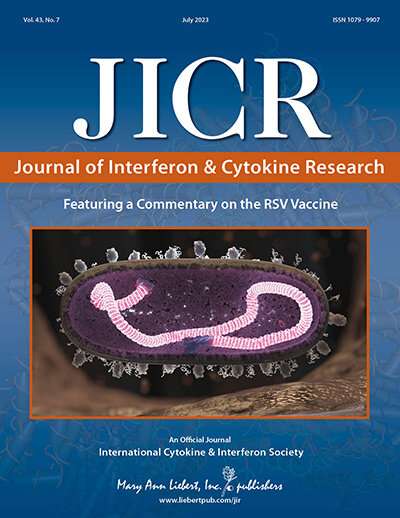Covers all aspects of interferons and cytokines from basic science to clinical applications. Credit: Mary Ann Liebert Inc., publishers
Two vaccines to protect against respiratory syncytial virus (RSV) are now available for those over age 60, but a vaccine to protect young children is still in development. "The Long-Awaited RSV Vaccine" provides an update on RSV vaccine research. The article is published in the Journal of Interferon & Cytokine Research.
Infection with the highly contagious RSV can cause severe lower respiratory tract disease. RSV infection is particularly dangerous in infants and young children and in the elderly.
After decades of trying to develop an RSV vaccine, two pharmaceutical companies have finally proved successful. The U.S. Food and Drug Administration granted approval of Glaxo SmithKline's vaccine on May 3, 2023, and approved Pfizer's vaccine on May 31, 2023, both for use in adults over the age of 60.
"A single administration of prefusion stabilized F protein vaccine formulations provided high levels of protections against RSV-related lower respiratory tract disease," state the co-authors, John Altman, from Emory University School of Medicine, and Barry Rouse, from The University of Tennessee, College of Veterinary Medicine.
Approaches to protect newborns and very young children have generally focused on vaccination of pregnant women. The authors provide up-to-date information on ongoing vaccine trials, as well as on other RSV vaccines in development.
"This is a tremendously important advance, not only for the control of RSV, but also for vaccine design in general," says Journal of Interferon & Cytokine Research Editor-in-Chief David L. Woodland, Ph.D.
More information: John D. Altman et al, The Long-Awaited Respiratory Syncytial Virus Vaccine, Journal of Interferon & Cytokine Research (2023). DOI: 10.1089/jir.2023.0076
Provided by Mary Ann Liebert, Inc























